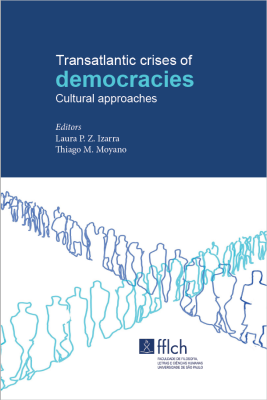Transatlantic crises of democracies: cultural approaches
Palavras-chave:
Democracy – Cultural aspects, Populism – Government and politics, Social movements, Community organization – Citizen participationSinopse
The first decades of the twenty-first century have staged the proliferation of institutional policies questioning, or even destabilizing, the core of what had once appeared to be the solid foundations of modern democracy. Certainly a disputed term in the contemporary arena, "democracy" has been systematically threatened by the emergence of authoritarian leaderships and discourses worldwide. What is it that is making such approaches to government more attractive than democracy? Intrigued by the processes that formed the current scenario, and thinking in terms of their implications in a model of multidirectional memory and transnational entanglement, Transatlantic Crises of Democracies: Cultural Approaches faces the challenge of presenting histories and cultural representations from various countries and different periods of time to highlight the dynamics brought about by the intersections of these distinct contexts and realities. This approach helps to explain the spiraling interactions that characterize the politics of memory in the last century in order to create new forms of solidarity and come up with new visions of justice. Through a transdisciplinary and transnational network of scholars from Brazil, Croatia, India, Hungary, Ireland, and the United States, this book brings to the front a series of works discussing the different ingredients that have encompassed the dismantling of democratic institutions across the Globe, but also the many forms of resistance that have been engaged to guarantee their future. Moreover, a broader dialogue was open beyond the walls of academia, reaching cultural entities, NGOs, and social movements that have all dealt with democratic crises by establishing solidarity actions and participatory practices that lead to the raising of social awareness through transformation and reconstruction.
Downloads

Downloads
Publicado
Categorias
Licença

Este trabalho está licenciado sob uma licença Creative Commons Attribution-NonCommercial-ShareAlike 4.0 International License.


 Português (Brasil)
Português (Brasil)
 English
English
 Español (España)
Español (España)
 Français (Canada)
Français (Canada)
 Deutsch
Deutsch
 Italiano
Italiano



